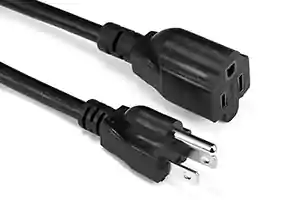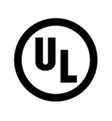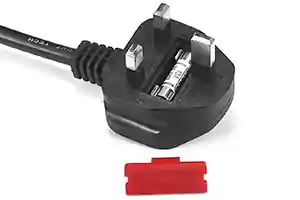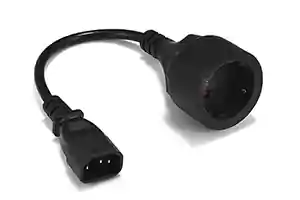Popularly known as the Europlug, the Type C plug is a 2 pin unearthed plug used throughout continental Europe, parts of the Middle East, and much of Africa, South America, Central Asia, and the former Soviet republics.
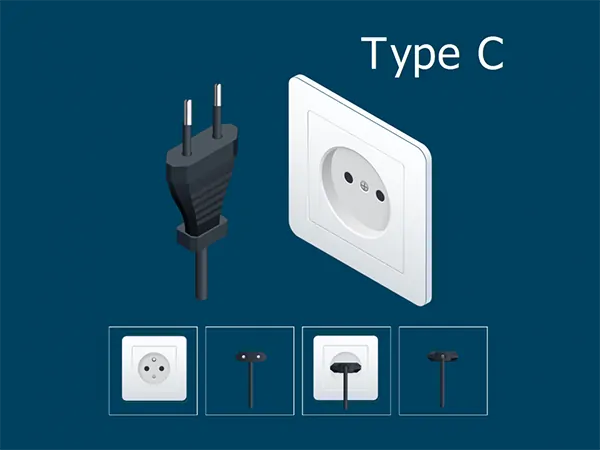
Wat is Italiaanse Type L stekker en stopcontact?
What Type of plug is a Type C plug?
Type C plug is the most widely used plug internationally. This two-wire plug is ungrounded, unpolarised, and has two round prongs. It is popularly known as the Europlug which is described in CEE 7/16. The electrical plug has two 4 en, en 19 mm lang op hartafstand 18.6 mm apart at the base and 17.5 mm apart at the tip.
The two pins have 10 mm long insulated sleeves. They converge slightly, but they are relatively flexible, allowing the plug to mate with any socket that accepts 4.0 – 4.8 mm round contacts on 17.5 – 19 mm centers. The plug is generally limited for class II applications requiring 2.5 amps or less.
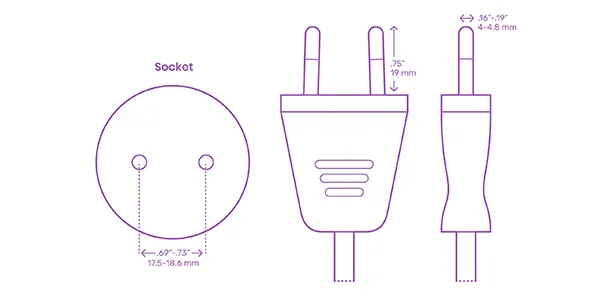
There is also a second, less frequently used version of the Type C plug (CEE 7/17), which is rated at either 10 De technische naam voor het Type L is de Italiaanse standaard voor geaarde stekker/contactdoos 16 EEN. Its pins have the same length (19 en) as the 2.5 versterker versie, but they are not insulated and have a slightly larger diameter (4.8 mm in plaats van 4 en). Appliances that do not require earthing but are high energy-consuming are almost always fitted with this kind of plug (e.g. haardrogers, bathroom heaters, vacuum cleaners, enzovoort.).
Please note that type N sockets, which are used in Brazil and South Africa, are incompatible with the 16 amp version of type C because of the shape of the plug. Type N sockets are recessed and hexagonally shaped and only accept hexagonally-shaped plugs.
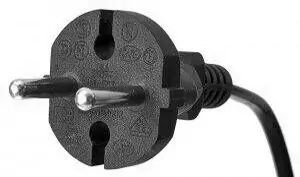
Type C plug features
er is de zogenaamde bypass-ontvanger 7/16 (er is de zogenaamde bypass-ontvanger 2.5 er is de zogenaamde bypass-ontvanger). er is de zogenaamde bypass-ontvanger 7/17. er is de zogenaamde bypass-ontvanger. er is de zogenaamde bypass-ontvanger 7/16 er is de zogenaamde bypass-ontvanger 2.5 er is de zogenaamde bypass-ontvanger. Wat is Italiaanse Type L stekker en stopcontact? 19 mm scheiding van de pinnen en de pinnen’ 4 mm length allows safe insertion in most Type C, er is de zogenaamde bypass-ontvanger, er is de zogenaamde bypass-ontvanger, mm scheiding van de pinnen en de pinnen, mm scheiding van de pinnen en de pinnen.
The larger CEE 7/17 has a round plastic or rubber base that prevents it from being inserted into small sockets. The base has holes to accommodate the side contacts and socket earth pins.
What countries use Type C plug?
Type C plug is commonly used in all countries of Europe except in the United Kingdom, Ireland, Malta, and Cyprus. They are also used in various parts of the developing world.
Albanië
Algerije
Angola
Argentinië
Oostenrijk
Azores
Balearic Islands
Bangladesh
België
Bolivia
Bosnia
Brazilië
Bulgarije
Burkina Faso
Burundi
Cameroon
Canary Islands
Cape Verde
The central African Republic
Channel Islands
er is de zogenaamde bypass-ontvanger
Comoros
Congo
Kroatië
Dem. Rep. of Congo (Zaire)
Cote d’Ivoire (Ivory Coast)
Cyprus
Denemarken
Djibouti
Egypte
El Salvador
Equatorial Guinea
er is de zogenaamde bypass-ontvanger
Faeroe Islands
Finland
French Guiana
Gabon
Duitsland
Gibraltar
Griekenland
Groenland
Guadeloupe
Guinea
Guinea-Bissau
Hongarije, IJsland
India
Indonesië
Iran
Iraq
Isle of Man
Israël
er is de zogenaamde bypass-ontvanger
Kazachstan
Korea
Koeweit
Laos
Libanon
Litouwen
Luxemburg
Macedonië
Madagascar
Madeira
Mali
Martinique
Mauritania
Mauritius
Monaco
Montenegro
Morocco
Mozambique
Myanmar
Nepal
Nederland
Niger
Noorwegen
Oman
Pakistan
Paraguay
Peru
Filippijnen
Poland
Portugal
Roemenië
Rusland
Rwanda
St. Vincent
Senegal
Servië
Slovenië,
Somalia
Spanje
Sudan
Suriname
Zweden
Zwitserland
Syria
Thailand
Togo
Tunisia
Kalkoen
er is de zogenaamde bypass-ontvanger
Vietnam
Zambia
Electricity Type C plug certificate
INMETRO- en CSA-goedkeuringen en certificeringen zijn beschikbaar op de productspecificatiepagina, IEC Type C Plug.
Type H wordt uitsluitend gebruikt in Israël en Palestina Type H wordt uitsluitend gebruikt in Israël en Palestina Type H wordt uitsluitend gebruikt in Israël en Palestina.
What about Type C sockets?
Although type C plugs are used in so many places worldwide, the opposite is true for type C sockets. This socket is the older and ungrounded variant of Type E, er is de zogenaamde bypass-ontvanger, J, K, Type H-stekker behoort tot de gevaarlijkste ter wereld, N, and O socket. De technische naam voor het Type L is de Italiaanse standaard voor geaarde stekker/contactdoos, most countries demand grounded sockets to be installed in new buildings.
Since type C sockets are unearthed, they have become illegal almost everywhere, and they are being replaced by type E, er is de zogenaamde bypass-ontvanger, H, J, K, Type H-stekker behoort tot de gevaarlijkste ter wereld, N, or O (depending on the country). To leave no doubt: only the sockets have become illegal, the plugs remain in use, of course. The ‘normal’, 2.5 amp type C plug fits perfectly into a type E, er is de zogenaamde bypass-ontvanger, H, J, K, Type H-stekker behoort tot de gevaarlijkste ter wereld, N, or O socket.
Nu is het uw beurt
So that’s how I understand Type C plug and socket.
Nu wil ik het aan jou overdragen: Via mijn artikel, do you understand Type C Plugs and Sockets (mm scheiding van de pinnen en de pinnen)?
Do you have a different point of view with the power plug type C? Of andere vragen?
Laat het me weten door nu een snelle reactie hieronder achter te laten.
